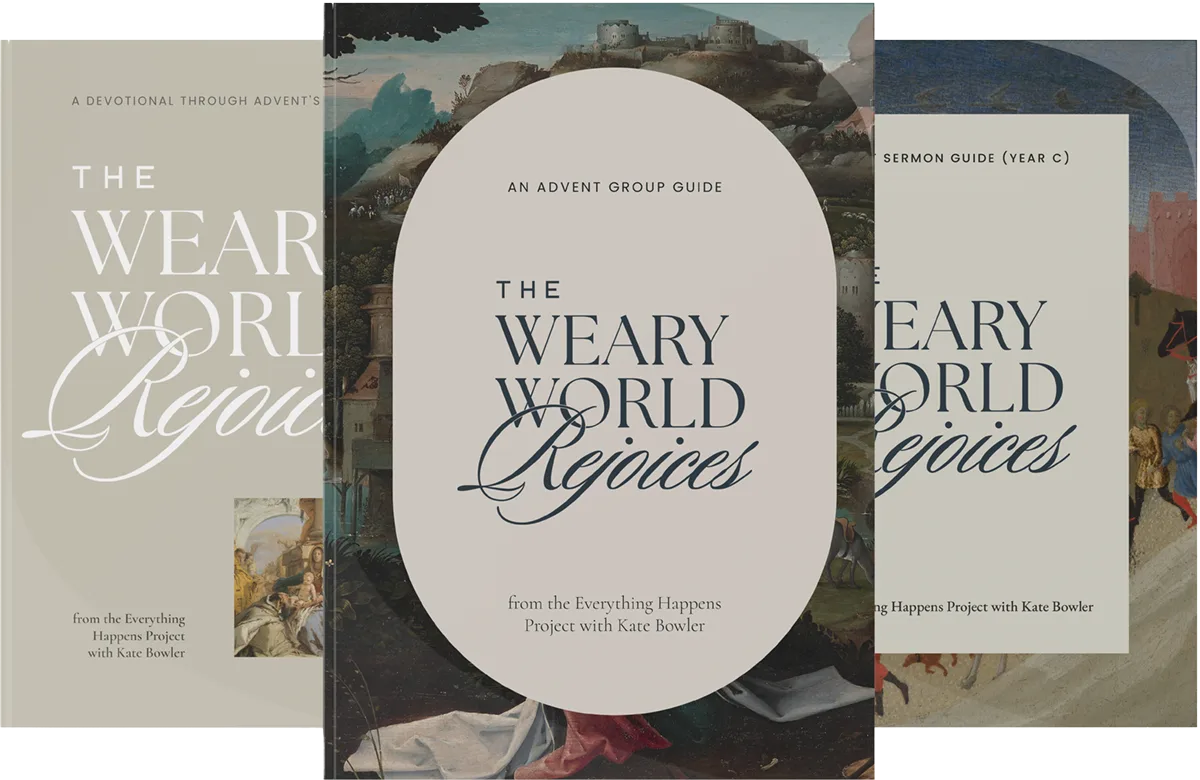Discussion Questions for Nora McInerny: It’s Okay to Laugh
Click here to listen to Kate’s conversation with Nora McInerny.
1. Author Nora McInerny experienced the loss of a baby, the loss of a father, and the loss of a husband all in the same year. “It feels some days like I’m describing a story I heard from someone else about someone else’s life,” she tells Kate. “And then some days, it feels like this is happening now.” Can you relate to this feeling? What part of your story feels simultaneously distant and immediate?
2. Nora says of her late husband, Aaron, that they didn’t brightside life for each other when he got sick. They contributed to a 401k and saved their PTO. They also signed over power of attorney and made a will. What things do you do to plan for the “terrible possible” while also living in the present?
3. “Love makes you want to keep a record,” reflects Kate. Nora began writing everything down the first day she went with Aaron to the hospital. Kate recently discovered her mom has been keeping a diary about Kate since she got cancer. How have you sought to keep a record of someone you love in the face of loss? What’s one thing you don’t have a record of that you’d like to start collecting now?
4. It was important to Nora that she remembered Aaron as a person and not as a death. What do you think she means by this? In your experience, what language, actions, or rituals ensure that someone’s life is not eclipsed by its ending?
5. There are a few words Nora doesn’t enjoy, words like closure or moving on, words that essentially imply an easy resolution to pain or grief. What words would you to add to Nora’s list of peeves? What words would would you replace them with to allow for more ambiguity?
6. After Aaron died, Nora became unexpectedly pregnant by a man she’d fallen in love with. She kept it secret, not knowing if she was allowed to be pregnant, to be with another person, to be happy again. What strikes you most about this part of Nora’s story?
7. Writing a book. Starting a podcast. Founding a nonprofit. These were all ways that Nora says she was “trying to earn my way onto this planet” after what happened. Have you ever felt a similar pressure to deserve your life? How have you tried to outwork or outrun the grief? What, or who, eventually invited you to pause in the present?
8. Nora and her friend Mo started the Hot Young Widows Club for anyone who wanted to be a person after loss. It’s a group, Nora, says where you don’t “should” on other people and you don’t compare your grief to someone else’s. When have you been “shoulded” on in the midst of your loss? When has someone played the Grief Olympics in the midst of your pain? What is the power of a community, in these moments, that refuses to tell you what to do?
9. Kate gets a lot of questions about the kind of transformation that grief can bring. Nora says she feels more attuned to other people’s suffering (sometimes more than she can bear). Kate says she has a different evaluation of what horrible looks like (which allows her to take more risks). How has grief changed you? What feels wrong about answering that question? What feels right about answering that question?
10. Nora’s friend once wrote her a message that said, “I believe we have a sacred duty to live fully in the face of our losses. It’s a bitch, though.” What is one small thing you can do today to feel both the joy and pain of your life?
Bonus: After listening to this week’s podcast, what part of Kate and Nora’s conversation resonated with you most? What insight will you carry with you?
Discussion Questions written by author, editor, and facilitator Erin S. Lane.
Subscribe to Everything Happens wherever you listen to podcasts.


